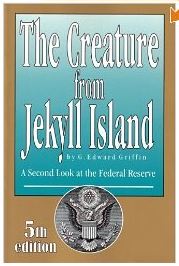by Paul Rosenberg, Freemansperspective.com

I was recently involved in a day of meetings with small business owners in the American Midwest. It was both encouraging and sad at the same time.
What I Found First
Overall, I found a large room full of productive human beings. It was uplifting. Most of these people were between thirty and seventy years old, more men than women, and they were all productive people, the kind who get up early every day, make sure that complex systems are producing properly, fix anything that is broken or near breaking, plan for the future, cooperate with large numbers of other people, and then go home at the end of the day and love their families.
If all the world lived like these people, we’d be halfway to a paradise by now. And that was a thought that made me sad.
Why? Because these people – by any standard of decency – should be left alone to create their better world. But instead, they are forcibly tied to wasteful, parasitic, and destructive systems. Half or more of their earnings are taken from them every year. Their actions are restricted by their moral inferiors. They live less than half the rewarding lives they should be enjoying, and for no defensible reason.
The Other Things
Beyond my overall happy/sad impressions, I found quite a few particular things:
- These people would have preferred to discuss the practical particulars of their businesses – tools, materials, technical obstacles and solutions, and so on. But instead, they were forced to discuss government compliance. Almost every subject discussed from the front of the room dealt with government regulations. Most of the subjects discussed on the sides involved tools, equipment, business strategies and so on.
- Dealing with employees is a major issue, especially involving the immigration police. These people are justifiably concerned with fines and indictments, just from hiring employees who are clearly long-time Americans. (That is, not Hispanics or other recent immigrants.) A few of the comments I heard:
“Good luck trying to explain that to an ICE agent.”
“Do NOT waive the 72 hour waiting period.”
“Do NOT allow them to enter your facility or inspect anything without authorization from counsel.”
- Nearly all of these people agreed that government in America is out of control, abusive, and oppositional to their happiness. I think that’s a positive opinion, since it reflects reality, meaning that they have stopped looking at the world through myth-colored glasses. The sad part of that is…
- These (good) people don’t know what to do about it. The system they grew up believing was their friend has turned against them. They’ve gathered the considerable courage required to face that, but they don’t know what to do next. They are working within the system as they can, trying to avoid its hazards, but don’t see any clear alternative – and no path of escape. They’d like to do other things, but they also need to feed their kids, and don’t know what to do about it all.
- Bitcoin is spreading everywhere. One of these business owners, in a very rural area, has built a Bitcoin mining operation. And not only Bitcoin, he is also mining for the other crypto-currencies. And, he’s telling everyone else about it. I was surprised (and pleased) by this, since this meeting had absolutely nothing to do with computers, economics, or anything else that usually connects to crypto-currencies. This man simply saw a great opportunity and jumped on it.
All In All
All in all, I came away from the day more confident in the future than I had been the day before.
We are exposed to so many horror stories every day. The images thrust upon us show a world filled with danger and discouragement. The reality, however – once you remove yourself from the newsfeed – is that there are a lot of very decent people who are generally doing the right things.
Our job now is to define newer and better ways to live and to spread that information to as many good people as we can. And to remind them they DO have the right to live good, happy, prosperous lives.
Please do everything you can along these lines. Thanks.
Paul Rosenberg
[Editor’s Note: Paul Rosenberg is the outside-the-Matrix author of FreemansPerspective.com, a site dedicated to economic freedom, personal independence and privacy. He is also the author of The Great Calendar, a report that breaks down our complex world into an easy-to-understand model. Click here to get your free copy.]










